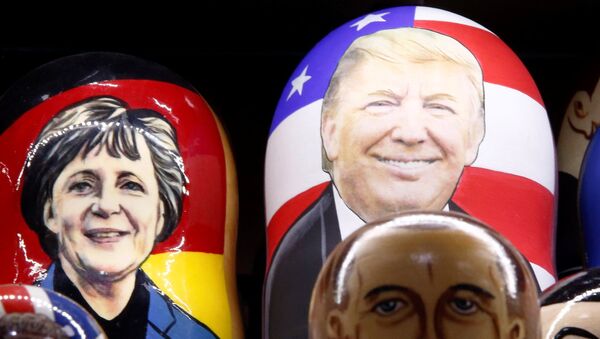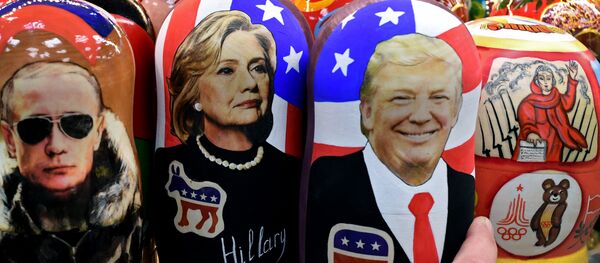MOSCOW (Sputnik) — According to the survey, the number of Germans, concerned about Trump's policies, increased by 16 percent in a month, reaching 78 percent, while only 19 percent of respondents said they were not worried.
As regards Putin, 58 percent of those surveyed expressed their concern over his policies, while 40 percent believed there was nothing to worry about.
The poll was conducted on February 14-16, with 1,231 Germans been surveyed.
Since 2014, relations between Russia and the European Union and the United States, deteriorated amid the crisis in Ukraine. Brussels, Washington and their allies introduced several rounds of sanctions against Russia on the pretext of its alleged involvement in the Ukrainian conflict, which Moscow has repeatedly denied. In response to the restrictive measures, Russia has imposed a food embargo on some products originating in countries that have targeted it with sanctions.
Since then, NATO has been building up its military presence in Europe, particularly in eastern European countries bordering Russia, using Moscow's alleged interference in Ukraine as a pretext.





